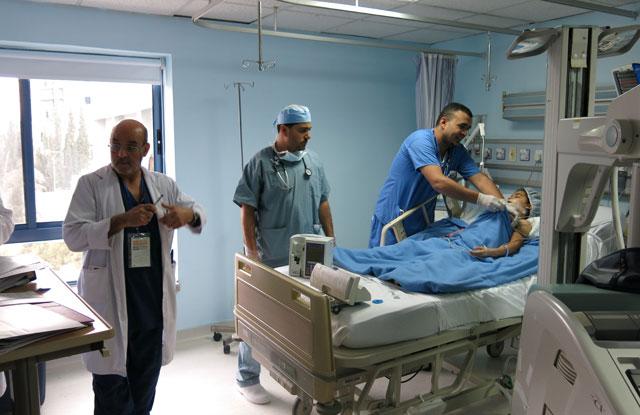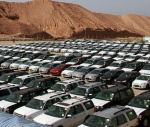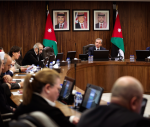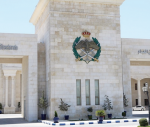You are here
Visa system, electricity tariffs hindering medical tourism — sector leader
By Dana Al Emam - Feb 14,2016 - Last updated at Feb 14,2016

Doctors treat a patient at a hospital in Amman recently. The Private Hospitals Association said on Sunday that the medical tourism sector took a hit last year (File photo)
AMMAN — The government’s decision to regulate the entry of nationals of some Arab countries to the Kingdom through the visa system has negatively affected medical tourism, a sector leader said on Sunday.
For the first time, Jordan witnessed a drop in the number of foreign healthcare seekers in 2015, with a total of 200,000 medical tourists, said Private Hospitals Association (PHA) President Fawzi Hammouri.
The figure marked a 10-15 per cent decrease in the number of patients and revenues generated, compared to over 250,000 patients generating revenues of JD1 billion in 2014, according to preliminary PHA figures.
Countries such as Yemen, Libya, Syria, Iraq and Sudan are major markets for medical tourism to the Kingdom, Hammouri said, noting that Jordan has no diplomatic missions in those countries to facilitate the process of issuing visas.
He noted that some war-torn countries in the region lack a reference authority for Jordanian hospitals to coordinate with.
Another challenge for the medical tourism industry is the increase in operational expenses due to the hike in electricity tariffs, with hospitals paying around JD0.27 per kilowatt-hour, while other sectors such as factories, hotels and shopping malls pay JD0.08, JD0.09 and JD0.12 per kilowatt-hour respectively, according to the PHA president.
The current electricity tariffs weaken the competitiveness of local hospitals, he said, especially with the rise of competing healthcare destinations in the region that offer discounts for family and friends accompanying patients.
On the other hand, Hammouri noted that insurance prices that hospitals collect from treating local patients are subsidised and low when compared to fees from non-Jordanians.
The sector representative encouraged public and private stakeholders to give more attention to promoting medical tourism in Jordan.
Complications that occur during or after surgeries in Jordan are within international norms, he added, warning of some efforts by parties with their own agendas to harm the reputation of the sector.
Hammouri expected the “dangerous” performance of the medical tourism sector to deteriorate further in 2016, as the visa regulations affecting nationals of some Arab countries went into effect late last year.
“We should at least contribute to factors we can control,” he said.
Related Articles
AMMAN — High electricity tariffs, increasing taxes and visa restrictions remain the major challenges facing the private hospitals' sector, a
AMMAN — The number of Libyan and Yemeni visitors to the Kingdom for medical tourism has dropped by almost 80 per cent over the first quarter
A total of 250,000 patients from abroad came to Jordan for treatment in 2014, a number that is almost similar to the year before, according to the Private Hospitals Association (PHA).















